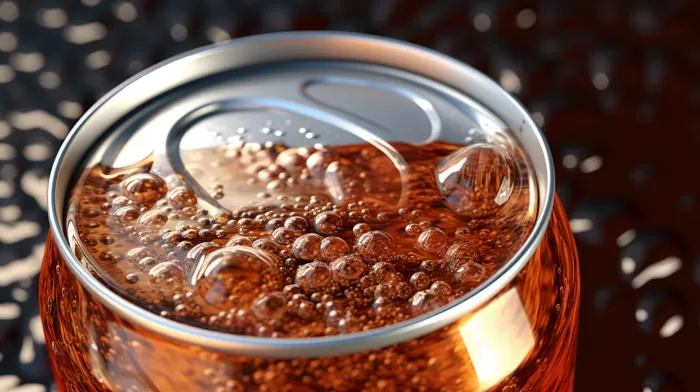There’s no denying it: consuming sugar through soft drinks lacking any nutritional value isn’t good for you. But when it comes to how fructose affects the brain, researchers have made some startling discoveries that should make you reconsider before grabbing another bottle of your favorite soda.
The Hunger Games: Fructose VS Glucose
A laboratory study at Yale has shown that while sugar in the form of glucose increases brain activity signaling that you might be full, ingesting fructose does not have the same effect. This suggests that ingredients like the high fructose corn syrup found in soda can leave you feeling unsatisfied and craving more. Ultimately, this insatiable feeling could lead to increased weight gain.
Yale researchers claim, “Increases in fructose consumption have paralleled the increasing prevalence of obesity, and high-fructose diets are thought to promote weight gain and insulin resistance. Fructose ingestion produces smaller increases in circulating satiety hormones compared with glucose ingestion, and central administration of fructose provokes feeding in laboratory animals, whereas centrally administered glucose promotes satiety.” Therefore, it’s believed that fructose could potentially increase food-seeking behavior and overall food intake.
While it is not yet entirely understood how brain regions are associated with fructose- and glucose-mediated changes in laboratory studies, scientists suspect that the high amount of fructose consumed is a contributing factor to our society’s growing weight problem.
Beyond Weight Gain: Additional Dangers of Fructose
Apart from the association between high fructose consumption and obesity, research has also uncovered other potential dangers tied to excessive fructose intake:
- Liver damage: High fructose consumption has been linked to non-alcoholic fatty liver disease (NAFLD), which can lead to liver inflammation and cirrhosis. Moreover, studies have shown that reducing fructose intake can improve liver function in people with NAFLD.
-
Increased risk of Type 2 Diabetes: Diets high in fructose can lead to insulin resistance, a precursor to Type 2 Diabetes. Over time, this resistance can lead to high blood sugar levels, which can damage the body’s vital organs and systems.
-
Heart disease: Research has shown that a high-fructose diet can increase the risk of heart disease by raising triglyceride levels, LDL cholesterol levels, and blood pressure.
-
Increased risk of gout: High levels of fructose have been associated with a higher risk of gout due to increased production of uric acid, which causes painful inflammation in the joints.
-
Cognitive decline: Studies have linked excessive fructose intake to impaired memory and learning abilities, as well as a higher risk of Alzheimer’s disease.
Practical Tips for Reducing Fructose Consumption
Now that you know the potential dangers of excessive fructose consumption, here are some practical tips to reduce your intake:
- Avoid sugary drinks: Soft drinks, fruit juices, sweet teas, and energy drinks can contain large amounts of high fructose corn syrup. Opt for water, herbal tea, or drinks sweetened with natural alternatives like stevia.
-
Read food labels: Many processed products, such as cereals, salad dressings, and snack bars, contain high fructose corn syrup. Always read the labels to make sure you are aware of added sugars.
-
Choose whole, unprocessed foods: Natural whole foods, such as fruits, vegetables, nuts, seeds, and whole grains, offer a variety of essential nutrients without the added sugars found in processed products.
-
Limit dried fruit: Despite being natural, dried fruits contain concentrated amounts of fructose. Enjoy them in moderation or opt for fresh fruits instead.
-
Be mindful with sweeteners: Honey, agave syrup, and maple syrup are often considered healthier alternatives to table sugar. Even though these sweeteners might contain beneficial nutrients, they still contain fructose and should be consumed in moderation.
In conclusion, it’s clear that high fructose consumption can have a significant impact on your overall health, particularly when it comes to weight gain and satiety signals. By understanding the risks associated with high fructose intake and making conscious choices to reduce your consumption, you can make a positive impact on not just your waistline, but your overall well-being.



